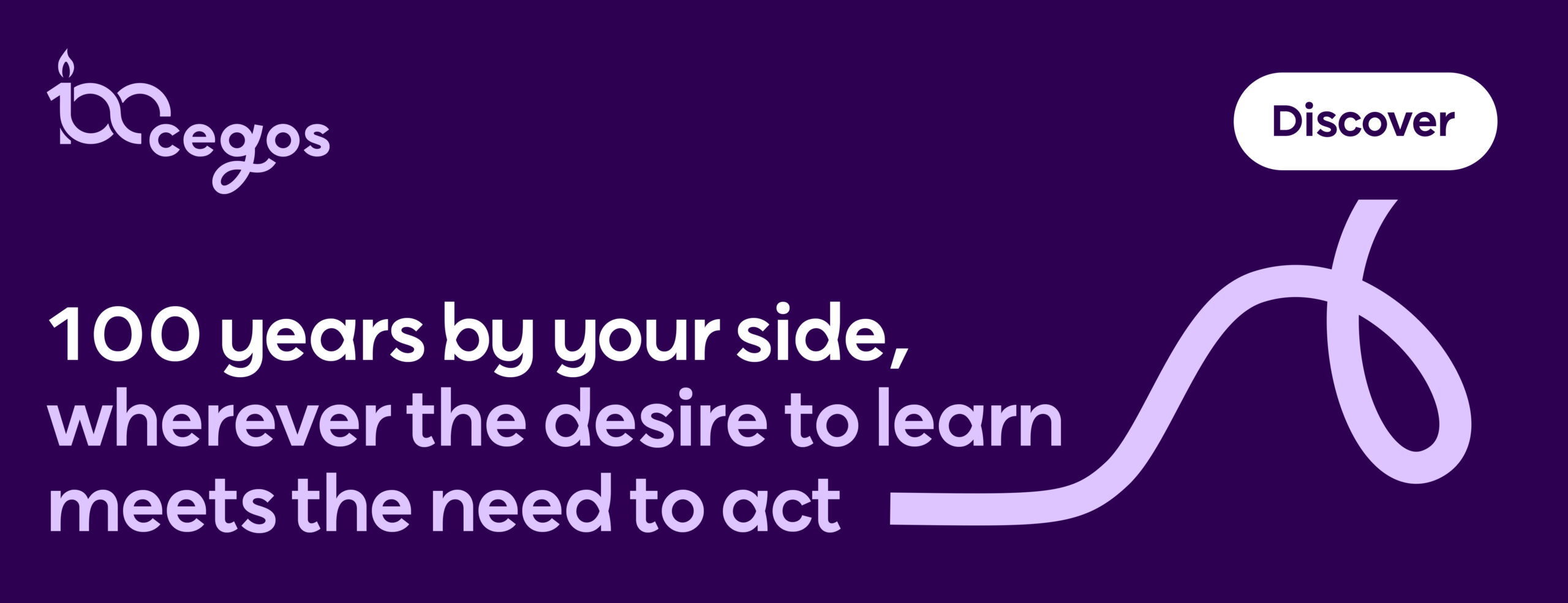
Mag summary
Solutions tailored to needs
Digital transformation is rushing through the corporate world with increasing speed - customers have new expectations - and entire markets are shifting. Innovative business models are emerging, processes and corporate structures need to be rethought, and our daily work is changing rapidly. With New Work, a change in work culture is developing in which we communicate and collaborate digitally. In addition, more and more employees are making decisions independently and under their own responsibility and using new technologies that allow them to work no matter the time or place.
The many changes brought about by New Work and digitisation are matched by new digital concepts in continuing education: Blended learning (i.e. learning programs that combine digital and classical elements), e-learning (that enables strongly personalised learning paths online and on mobile technology) or smart and technology-driven learning formats with the use of augmented and virtual reality or artificial intelligence. Digitalisation thus creates completely new ways of learning. In short: The more digital the format, the more personalised the learning path and the more self-determined and responsible the learner.

A small decision-making aid
In view of the rapid changes in the world of work, it makes sense to also rely on digital formats in continuing education. And indeed, new learning systems offer numerous advantages. But anyone developing a training concept for his or her company and employees will find that the decision is not so easy to make. When it comes to choosing the optimal learning program, there are a few factors that favour digital or classic formats - or all conceivable combinations in-between :
1. The people
Even if it sounds trivial, first of all you should be aware that the staff in a company, colleagues in a department and also members of a project team are highly diverse groups. This starts with obvious features like age. Experience has shown that many older colleagues prefer direct contact with a teacher and course participants rather than purely digital communication - this trend is less pronounced among younger employees. In addition, the younger people are much more at ease digitally. Using digital devices and media is often automatic and goes without saying. And even though digital learning programmes are easy to employ, learners need a minimum level of experience and digital curiosity to use interactive learning content effectively.
In addition, there are employees who find standard learning done in a linear way, all at once, much easier, like at school. Classic formats with low digital content would be more suitable for this type of learner. Others, on the other hand, appreciate the high flexibility of digital learning paths. They want to learn when and where it fits into their daily routine and want to adapt the workload to their personal speed of learning. Those looking for these advantages, need to be always motivated to study on their own and like being responsible for their own learning.
2. The company at a glance
Different levels of digital maturity can also be observed between companies. Companies that have little to do with digital processes and procedures may find it harder to organise and understand digital education than those that run a digital business themselves. Corporate culture also plays an important role in another aspect: In companies with strong hierarchies, many things are controlled at management level. However, digital learning programs require freedom and a great deal of personal responsibility to flexibly combine work and learning.
3. The contents
And finally, the learning contents and the learning objectives of the further training are also decisive for selecting the appropriate format. Thus, training courses on project management or the productive use of Office 365 or on IT security can be excellent when digital or supplemented digitally. In the case of Office 365 training, this could mean that when concrete gaps in knowledge arise, learners in the workplace can individually select small learning modules, revise them and successfully apply them.
Conversely, seminars on presentation and public speaking, intercultural skills or service management benefit greatly from the participants' presence and the direct exchange between them and the trainers. Of course, digital formats can also be used sensibly here - but physical presence is still particularly valuable.
Solutions tailored to needs
In principle, the level of digitisation of continuing education formats can be divided into four learning levels:
- From "Offline" (minimal level of digitisation and low responsibility for own learning)
- to "Blended" (face-to-face events with digital learning platform
- and "Online and Mobile" (self-selected, independent learning not dependent on time or location with digital devices)
- up to "Artificial Intelligence" (completely independent and with the use of Augmented or Virtual Reality).
But when choosing the appropriate learning programme, it should be known that in the reality of continuing professional education projects, it is rare that only one of the four stages is used alone. Rather, measures are tailored to the individual needs of the company.
The best results can often be achieved with a customised mix of digital and face-to-face formats. To clarify requirements, ask the right questions and develop target-oriented learning concepts, companies should seek advice. Competent advice takes into account all essential factors such as corporate culture, project structures, process orientation and, of course, the personal preferences of employees. This is how companies find effective and efficient learning paths in the digital age.
Also read Part (1) "The Future of Learning for Companies and Employees" and Part (2) "Digital career building blocks" in our professional article series on the topic "Relearning learning".










